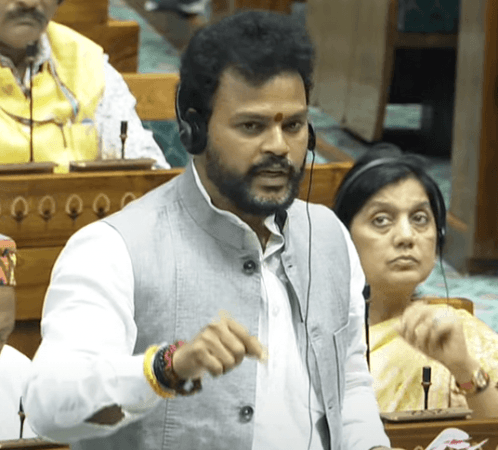
Civil Aviation Minister Kinjarapu Rammohan Naidu launched the 'Guidelines for Seaplane Operations' on August 22, 2024. The guidelines aim to harness India's extensive coastline and vast network of rivers and lakes, presenting a unique opportunity for the development of this fast mode of transport. The Minister, in his address at the Indian Aviation Academy, emphasized that these guidelines are not merely about integrating seaplane operations into India's aviation landscape. They are also about creating jobs, fostering economic empowerment, and making seaplanes a symbol of the country's growth, innovation, and commitment to inclusive development.
The guidelines are a result of a careful study of the situation and drawing from the experience of helicopter operations. The Government has taken a flexible and pragmatic approach to ensure the growth of seaplane operations. The Minister also announced that demonstration flights of the seaplane by manufacturer DeHavilland would be held shortly, marking a significant step in the practical implementation of these guidelines.
The Minister further elaborated on the vision of developing Multimodal Transport Hubs for seamless connectivity between seaplanes and other transport modes. This vision is part of a broader goal to create a regulatory framework that fosters innovation, promotes growth, and generates employment opportunities for pilots, maintenance staff, and ground crews by prioritizing local workforce development.
The guidelines also enable seaplane operations under the regional connectivity scheme (RCS) to make use of the operations under a Non-Scheduled Operator Permit (NSOP). The extension of the Viability Gap Funding (VGF) under the RCS to seaplane operations would provide the initial fillip to the operators. While seeking to promote seaplane operations, due care has been taken to ensure the safety and security of the operations.

Despite initial challenges, particularly in the development of water aerodromes, the Government has taken a flexible and pragmatic approach to ensure the continued growth of seaplane operations. These guidelines prioritize the safety and security of operations and define the responsibilities of all stakeholders, ensuring a seamless and efficient seaplane operation across the nation. The adoption of the Non-Scheduled Operator Permit (NSOP) framework for seaplanes is a significant step forward in the Government's commitment to enhancing regional connectivity.
In addition to the seaplane guidelines, the Minister also launched the 5.4 version of the UDAN scheme for commercial flights to small airports. Under the scheme, fresh bids will be invited for the unserved air routes on which flights have still not been introduced or have been cancelled for some reason or the other.
The Union Minister emphasized the need for a favourable policy environment for the seaplane industry in India and encouraged research into technologies like electric seaplanes to reduce carbon emissions and align with India's commitments under the UN Framework on Climate Change.
Union Minister of State for Civil Aviation Murlidhar Mohol said that the seaplane initiative is poised to not only improve connectivity but also to boost tourism, foster economic growth, and bring the most remote areas of India closer together. Union Civil Aviation Secretary Vumlunmang Vualnam said the Seaplane NSOP Guidelines will provide a structured and safe framework for seaplane operations to continue and grow, even "as we work towards the full development of water aerodrome infrastructure."
The launch of the seaplane guidelines is a significant step in India's aviation history. It is reminiscent of the introduction of helicopter operations, which revolutionized air travel and connectivity in the country. The seaplane operations, with their potential to utilize the country's extensive water bodies, promise to bring about a similar revolution, enhancing connectivity, boosting tourism, and fostering economic growth. The guidelines, with their focus on safety, security, and stakeholder responsibilities, ensure that this revolution will be a sustainable and inclusive one, contributing to the country's overall development.

















